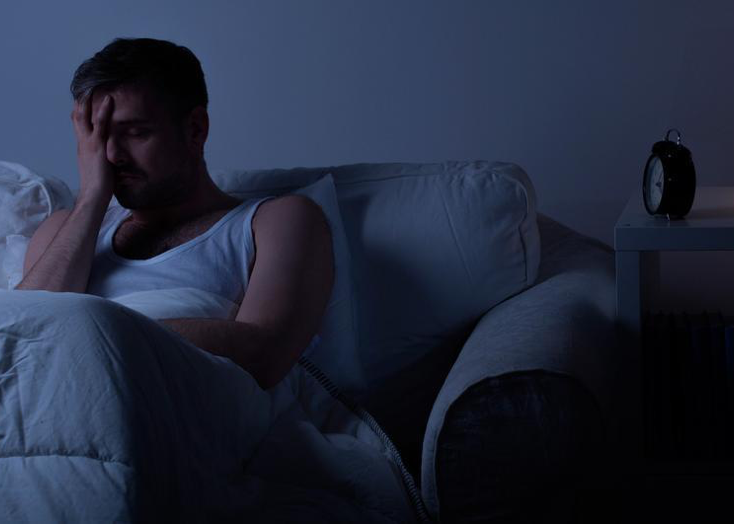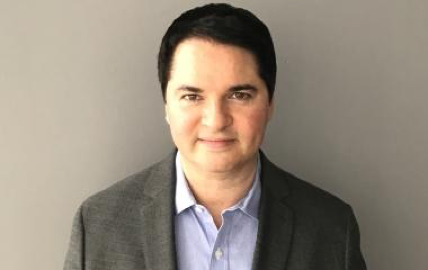The Impact of Chronic Sleep Deprivation
Sleep is easy to undervalue. And it begins in childhood. When bedtime rolls around we beg for one more story to be read, or to play one more video game. When those tactics fail, our strategy shifts to an organized plot to take control of the house and topple the leadership.

YOU DIDN’T KNOW THAT? NOW YOU DO.
Sleep is easy to undervalue. And it begins in childhood. When bedtime rolls around we beg for one more story to be read, or to play one more video game. When those tactics fail, our strategy shifts to an organized plot to take control of the house and topple the leadership. We equate giving in to sleep with missing out—on something. Whatever it is that parents do when they close our bedroom door.
As adults we associate sleep—and crawling under the covers—with laziness and defeat. We guzzle coffee and binge-watch Netflix to avoid it. Stifling yawns, we brag about not needing it, propping ourselves up with the old canard, You snooze, you lose.
At the very least, sleep could use an image refresh. What it really needs is a revolution.
Rethinking our relationship with sleep.
Arianna Huffington, the Greek-born political activist turned digital publishing mogul, has famously been leading the charge to the bedroom for the last few years. She’s loudly decried sleeplessness as a public health crisis tantamount to smoking in the mid-20th Century. In her books and talks, and on her new wellness platform Thrive Global, the self-described sleep evangelist makes the case that improved sleeping habits and prioritizing rest will forge better students, teammates, leaders and lovers. She’s all about “changing the collective delusion that burnout is the price we must pay for success.”
But really the revolution should embrace something even bigger, believes Rubin Naiman, Ph.D., a psychologist and sleep specialist. “All of sleep medicine asks the same [thing]: How can sleep make us better waking people,’’ he said. While there’s no question that nourishing rest improves our performance, mood and overall health, there is this presumption that sleep is subservient to waking life. And that’s the wrong approach, the thinking that must be upended. We need to re-imagine our relationship with rest. And get to the bottom of why we resist this biological drive.
A brief history of sleep science.
The field of sleep research is a relatively new one, and scientists to this day still struggle both to define sleep and agree on its core function. Modern research is said to have begun in 1953, when Dr. Nathaniel Kleitman, of the University of Chicago, discovered REM sleep and connected this high-activity sleep stage to vivid dreaming. Progress continued when, four years later, Dr. William C. Dement of Stanford University—considered “the father of sleep medicine”—measured brain activity during sleep using electroencephalography, or EEG. This allowed the stages of sleep to be observed, and subsequently defined, for the first time. Barring a few tweaks this classification is used today.
Dement went on to found the Stanford Sleep Clinic, the first full-scale sleep research center, which paved the way for the more than 1000 sleep clinics across the country today.
Over the next 40 years, sleep disorders were identified; treatments, including devices like the CPAP (for sleep apnea) were invented; and psychiatrists discovered that rats died from sleep deprivation within two to three weeks. During the last decade researchers have linked poor sleep to a host of chronic illnesses and diseases, as well as compromised emotional and mental health.
Although none of us needs scientific proof that our mood and worldview turn bleak after a few rough nights, many of us still cling to the idea of sleep debt as a badge of honor. Huffington was one of those people, until a smashed cheekbone sparked her personal sleep revolution. “We sacrifice sleep in the name of productivity, but ironically our loss of sleep, despite the extra hours we spend at work, adds up to 11 days of lost productivity per year per worker,” Huffington writes.
In other words, unless you sleep like a boss, you’ll function like a peon.
This is your brain on sleep (vs. no sleep).
While long hours have been logged in the pursuit of success, clocking time in the bedroom, Huffington says, is the true path to the C-suite. Sleep recharges the region of the brain that houses our most highly evolved mental abilities, including problem solving, organizing and planning. Collectively, they’re known as executive functions. When you don’t get enough sleep, your basic brain functions will suffer somewhat but still operate reasonably well. Meanwhile the executive functions go haywire.
So while you’ll be able to row a boat, you’ll have trouble steering a ship.
The benefits of sleep aren’t all work and no play. A Stanford study of the university’s basketball players found that after a week of extra sleep, free-throw and three-point shooting accuracy improved by 10 percent or more while running times improved by similar margins. Pro sports teams and Olympic-level athletes take sleep seriously, with some NFL teams mandating early bedtimes and distributing sleep-regulating technology like light boxes.
During sleep, the body regenerates at the cellular level, repairing muscles taxed by physical activity. As overtaxed muscles re-grow and strengthen, hormones like melatonin and testosterone are released, easing inflammation and restoring the body’s state of balance.
Sleep powers your ability to learn new skills and information. A 2010 University of California, Berkeley, study found that during sleep, the brain fortifies new memories to build long-term knowledge. While we dream, the brain tidies its workspace and performs updates, cleaning out previous stores of short-term memory to make space for fresh information and cataloguing newly learned, important data. A Southern Methodist University study , for instance, found that musicians better remembered new melodies after a good night’s sleep.
Those memory-enhancing properties extend to muscle memory, as well, which means that it’s easier for well-rested athletes to put a new play into action.
Besides unlocking creativity and productivity, a good night’s rest can make you a calmer, more empathic person. One study concluded that people who sleep less than eight hours a night are more irritable than those who are well-rested.
Emotional intelligence also drops when you’re tired. A 2014 study found that sleep-deprived people couldn’t accurately read others’ moods in their facial expressions, especially sadness. The ability to divine emotional states is also key to physical intimacy, as more sleep spurs sexual desire in both men and women.
Every revolution faces resistance, and sleep is no exception.
All evidence points to the fact that chronic sleep deprivation will darken your days, render you unproductive, and make you cranky. Not only that, research shows that it will slowly kill you. Study after study shows that those who sleep poorly are at greater risk for a host of diseases and health problems. So why do we continue to fight the urge to lie down at night?
Naiman attributes our resistance to something deeper: a fear of the dark and being alone with ourselves. This, he believes, is the true enemy. After a day of distractions, the darkness illuminates some truths we may not want to face, and all the fears and anxieties that have been suppressed pop up once the lights go out.
“We must learn to be comfortable being alone with ourselves in the dark,” said Naiman. He suggests building rest periods throughout the day, time away from distractions, “so there’s not all this built-up pressure to emotionally process stuff when we go to bed.” While there are many tips to help set the scene for sleep, what’s really needed, says Naiman, is for us to transform our relationship, “to fall in love with sleep,” to learn not to fear it. “Having faith in our ability to fall asleep, he said, translates into having faith in ourselves.”
And though it might not seem as dramatic as General Washington leading his troops in a wintry Delaware crossing to take the British forces by surprise, embracing sleep in a new way would be truly revolutionary. And clearly worth a shot.

